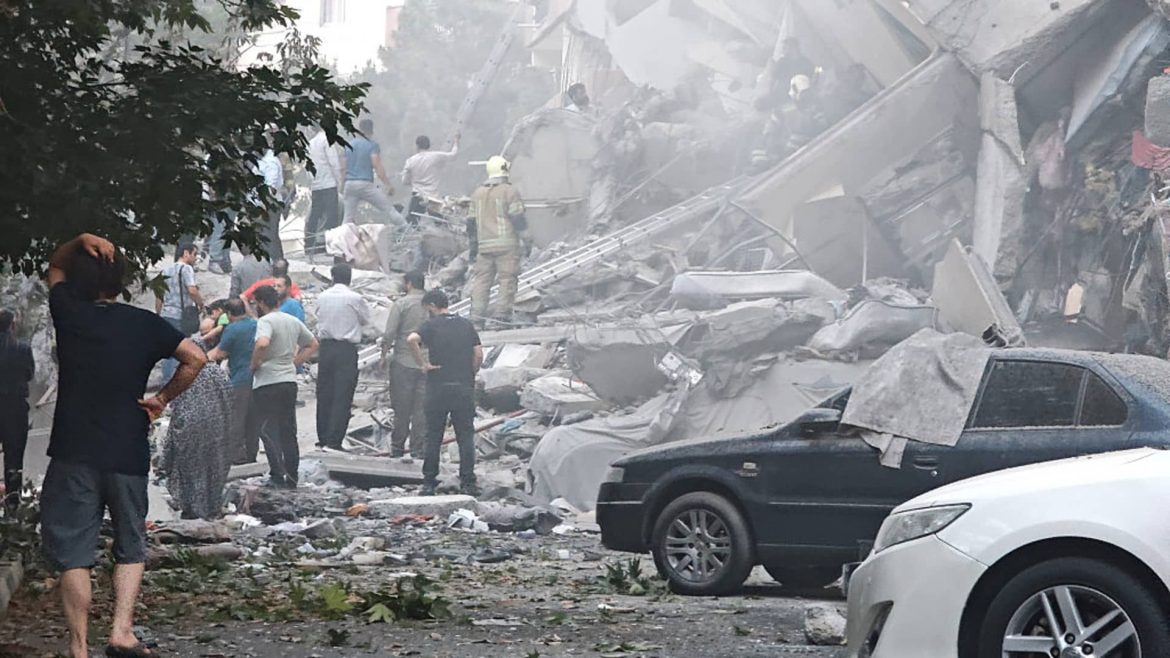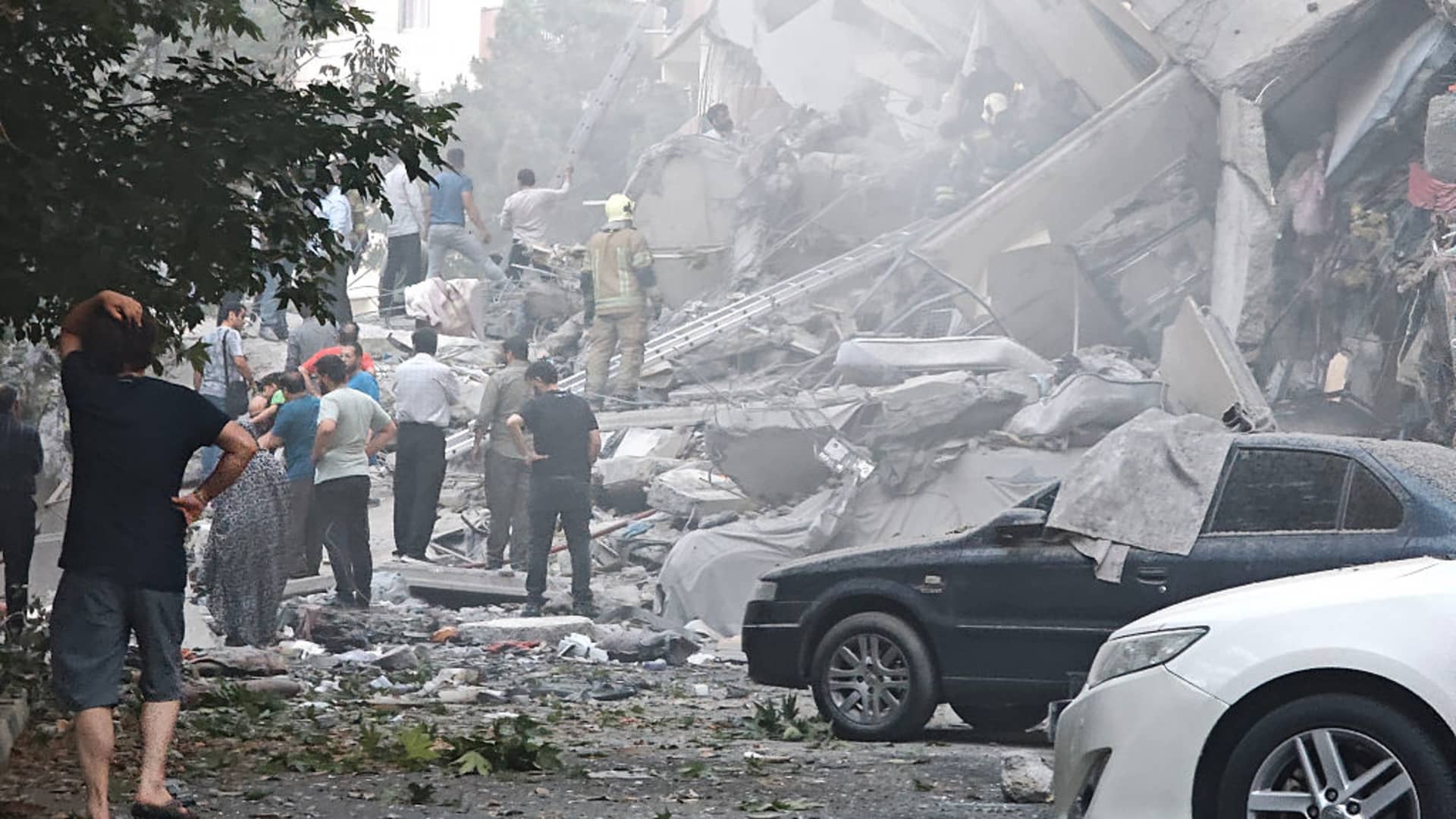Analyzing the Global Response to Israel’s Recent Strikes on Iran’s Nuclear and Military Facilities
The recent Israeli airstrikes targeting over 100 sites across Iran, including critical nuclear and military installations, represent a significant escalation in Middle Eastern tensions. The operation, characterized by Israel as a decisive moment in its national security strategy, has elicited swift and varied reactions from world leaders, international organizations, and regional powers. This report explores these responses, the geopolitical implications, and the broader context surrounding the unfolding crisis.
—
Context and Scope of the Israeli Strikes
In a large-scale operation involving around 200 jets, Israel struck numerous Iranian sites associated with its nuclear program and military leadership. Israeli Prime Minister Benjamin Netanyahu described the attacks as a necessary and historic action to thwart Iran’s nuclear ambitions. The strikes reportedly targeted not just infrastructure but also high-profile military figures, including the head of Iran’s armed forces, which marks an unprecedented depth of engagement. This aggressive posture reflects Israel’s long-standing concern over Iran’s nuclear capabilities and regional influence.
—
Immediate Reactions from Israel and Iran
Israel maintains that the campaign “will continue for days,” signaling an ongoing offensive rather than a one-off strike. This unilateral military action is portrayed by Israeli officials as pre-emptive and defensive.
Iran, on the other hand, has vowed to retaliate forcefully. Iranian leadership, including Supreme Leader Ayatollah Ali Khamenei, framed Israel’s attack as an act of aggression, justifying Iran’s right to self-defense. The death of senior military officials has further escalated tensions, with Iran beginning a retaliation campaign aimed at Israel shortly after the strikes.
—
International Response: Calls for Restraint and Diplomacy
Global reactions have largely coalesced around urgent pleas for restraint and de-escalation. World leaders from various regions emphasized the critical need to avoid further conflict that could destabilize the already volatile Middle East. The United Nations Secretary-General condemned the escalation, stressing a return to diplomacy as the preferred path.
Notably, several key figures and entities echoed similar sentiments:
– United States: Stated a priority to protect American interests but distanced itself from direct involvement in the strikes, signaling a cautious stance amidst the volatility.
– United Kingdom: Prime Minister Keir Starmer urged all parties to step back from the brink and reduce tensions, emphasizing the importance of calm and diplomacy.
– European and Australian Leaders: Reiterated concerns over stability and the risks of widespread conflict, advocating for measured responses.
– United Nations: Called for immediate cessation of hostilities, highlighting the dangers of broader regional escalation.
—
Regional and Geopolitical Implications
The strikes thrust the Middle East further into uncertainty, risking a spiral of retaliatory attacks. The region is already embroiled in multiple conflicts involving Iranian-backed militant groups and Israeli security concerns. Intensifying this dynamic threatens to exacerbate existing fault lines.
For neighboring states and regional powers, the developments present a complex challenge:
– Allies and partners in the Middle East face pressure to navigate between opposing interests and calls for cautious diplomacy.
– Global powers weigh their strategic positions carefully, balancing support for Israel with concerns about regional destabilization.
The potential for a broader conflict looms large, with fears that this incident could ignite wider confrontations beyond the immediate belligerents.
—
The Role of Media and Opposition Voices
Within Israel, even opposition parties, historically critical of Prime Minister Netanyahu, expressed a rare sense of unity in response to the strikes. This unified front underscores the perceived gravity of the threat posed by Iran’s nuclear program.
Internationally, media coverage has highlighted the unprecedented scale and precision of the attacks, while also spotlighting the humanitarian and political risks. Analysts emphasize the unpredictable consequences of such military actions, including the possibility of drawing global powers into the conflict.
—
Conclusion: Navigating a Precarious Crossroads
The Israeli strikes on Iranian nuclear and military targets mark one of the most consequential escalations in recent Middle Eastern history. The global chorus urging restraint and a return to diplomacy reflects a shared awareness of the severe risks ahead. While Israel positions its offensive as a necessary defense measure, Iran’s promise of retaliation sets the stage for a dangerous tit-for-tat dynamic.
At this critical juncture, the international community’s response will be pivotal in shaping whether tensions spiral into open war or revert to controlled hostility. The path forward demands careful navigation through complex geopolitical landscapes, balancing deterrence, dialogue, and a committed pursuit of stability.
Ultimately, this episode underscores the enduring volatility of Middle Eastern geopolitics and the fragile prospects for peace amidst competing national security imperatives.





